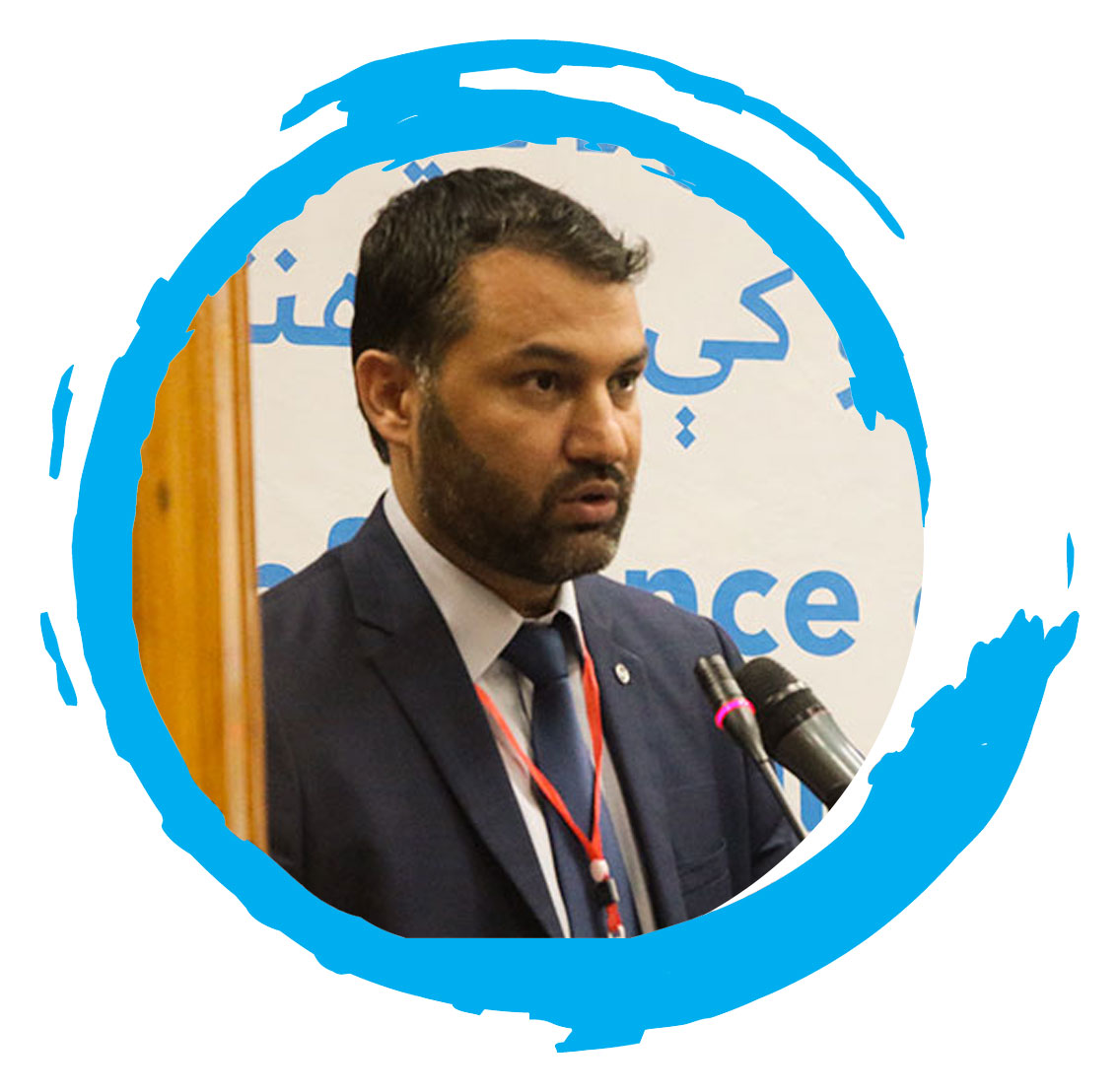
Dr. Kohkan Fazelpour
“Structure of SDGs in Afghanistan”
The Executive Committee on SDGs, established on July 8, 2017 is the common platform in Afghanistan that brings together the key stakeholders (the government, private sector, civil society and international partners) for coordination of SDGs activities and their implementation. The Executive Committee of SDGs as per its mandate provides government support and policy advice to on proposed SDGs implementation mechanism to the Ministry of Economy. In addition, the executive committee creates cross-sectorial coordination to accelerate the implementation of the SDGs and provide oversight on the progress of the ASDGs targets and indicators. The Executive Committee is co-chaired by the Office of the Chief Executive of the IRoA, the Ministry of Economy and UNDP Afghanistan.
The executive committee is expected to make sure that the SDGs are aligned with ANPDF and is implemented in a timely manner. In addition it is supposed to make sure the national policies and sectoral plans are also aligned with SDGs. The executive committee in addition to above facilitates the coordination and monitoring among government entities track progress of SDGs at national and international level. Most importantly and lastly, the Executive Committee has to try and make sure that the SDGs have become part of national discourse.
Below is a script taken from the SDGs Executive Committee term of reference regarding the budget sectors of the SDGs:
“Given Afghanistan’s intention to nationalize the SDGs based on its national priorities and its budgeting process, the executive committee is composed of eight budgetary sectors. With a view to streamline the coordination process in the context of these eight budgetary sectors (Security, Good Governance, Agriculture, Rural Development, Economic Growth, Infrastructure, Health, Education and Social Protection), and four technical working groups have been designed to mainstream the coordination process within the Executive Committee on Sustainable Development Goals.”
The TOR regarding the technical working groups says that the technical groups have been designed so that related topics, that are associated to the budgetary sectors, can be discussed within an umbrella working group. Therefore, the four technical working groups respectively focus on:
Subsequently, the technical working groups focus on the reform actions required to address each of the issues that are cross-cutting with the SDGs, with the purpose of attaining the SDGs linked to their respective issue. The technical working groups will in addition include systematic discussions on strengthening partnerships, necessary to achieve the SDGs related to their respective areas of interest. Detailed terms of reference and standard operating procedures for each working group may be developed if necessary. In such case, the working group is responsible for drafting its terms of reference and standard operating procedures and submits those to the Executive Committee on Sustainable Development Goals for approval.
Once available, the main characteristics of the terms of reference and standard operating procedures of the Technical Groups will be annexed to the present terms of reference, as annex the Ministry of Economy conveys the opportunity to participate to each of the technical working groups to the civil society and the private sector. The Executive Committee on Sustainable Development Goals will appoint the representatives of the civil society and private sector that are most relevant to the cross-cutting issue to be discussed by the respective working group.
Members of each Working Groups are to be decided by the Executive Committee on Sustainable Development Goals.
representatives of the private sector, representatives of the donors’ community, Asian Development Bank (ADB) and The World Bank
Comment is not allowed